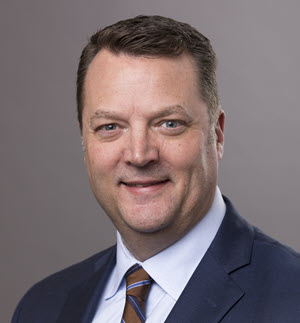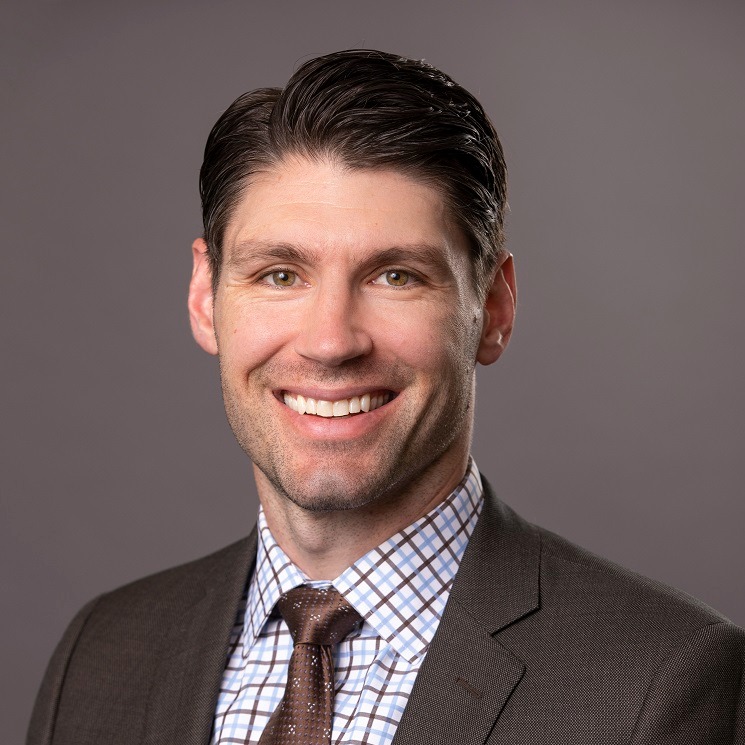| Oct. 6, 2020 Edition 62 |
 |
|

|
||||||||||||||||||||||||||||||||||||||||||||||||||||||||||||||||||||||||||
|
||||||||||||||||||||||||||||||||||||||||||||||||||||||||||||||||||||||||||

|
||||||||||||||||||||||||||||||||||||||||||||||||||||||||||||||||||||||||||
| © 2020 Centura Health. All Rights Reserved. Proprietary and Confidential - for internal distribution only. |
 Vance McLarren, President, CHPG |
Now that the second quarter has begun, be sure to schedule a conversation with your leader about your strengths, development interests and goals before October 30.
Be a role model
Associates and leaders should now “start a conversation” within PERFORM. You can access the system from My Virtual Workplace (through single sign on) from the “Work Tools” tab selecting “Non-clinical Tools” then selecting “Glint Perform.”
Start a conversation
The quick reference guide will help you begin the process. First, everyone completes the Self Reflection tab. For goal-setting, associates will be prompted to enter one or two development goals for the quarter. Associates have the option to add one business (organizational) quarterly goal focused on and aligned with our 2025 strategy and your department or facility’s FY21 goals. Leaders are encouraged to have two business goals and one or two personal development goals for each quarter.
Questions?
A toolkit is available on LeaderResource. eLearning modules on continuous development conversations using the PERFORM platform are available in the LEARN course catalog. You may also reach out to your Human Resources Director, or email perform@centura.org for additional support.
Optimizing timekeeping and scheduling with Kronos Workforce Dimensions (WFD) takes time and a commitment to keep learning, experiencing and better understanding the system – from associates, leaders and timekeepers, as well as our WFD steering team as we continue making adjustments to streamline and enhance the system. Your ongoing feedback is helping us build a better experience and deliver on the value expected by our leaders, timekeepers and associates.
This month you will see several changes and new resources:
An annual influenza vaccine is the best defense against the seasonal flu, and it’s important to get your flu shot every year to keep you healthy and making a meaningful impact in the lives of those around us. As caregivers, we have an ethical and professional obligation to make every flu season as safe as possible for our patients, communities and fellow caregivers.
As the COVID-19 pandemic continues to impact our communities, it’s more important than ever to get a flu shot this year. Not only will the vaccine help protect you and those around you from getting the flu – including your family, neighbors, coworkers and patients – but it could also help free up health care workers and resources responding to COVID-19.
With associate vaccination options available across the system, as well as locations available across our communities where you can receive a flu shot that’s covered 100% by most health insurance plans, including Centura Health Medical Plans, now is the time to make sure you’re protected against the upcoming flu season, and encourage your family members, friends and neighbors to get their flu shot too. According to the Centers for Disease Control and Prevention, getting an annual flu shot by the end of October is the best way to prevent becoming sick with the flu or flu-like illnesses, and the seasonal flu vaccine is most effective in preventing the spread of disease when a majority of people in our communities receive it.
“Everyone should get the flu vaccine, especially this year,” says Centura Health’s Dr. Stephen Cobb. “We have plenty of supply, and the supply is available right now.”
When a person receives a flu vaccine, it causes the body to create antibodies. This process takes approximately two weeks after vaccination. These antibodies provide protection against infection from this year’s anticipated strains of the flu virus. It’s important to know that last year’s flu vaccine won’t be of much help this year. Because flu viruses constantly adapt and evolve, new vaccines are released annually to best protect you and your loved ones. Also important: Dispelling the myth that the flu shot gives people the flu. In truth, the influenza vaccine contains inactivated (killed) viruses.
Though ongoing social distancing measures, mask-wearing and hand-washing related to COVID-19 could help reduce the severity of this year’s flu season, they are not substitutes for the influenza vaccine.
“That’s no reason to not get the vaccine,” Dr. Cobb says. “In fact, we need to do everything right – including getting a flu shot – to make sure we have ample health care capacity for all of our citizens.”
The Centers for Disease Control and Prevention recommends annual influenza vaccinations for everyone ages 6 months and older, with few exceptions. Vaccination is particularly important for people at high risk of influenza complications, including pregnant women, older adults and young children. In addition, people who have medical conditions such as asthma, chronic lung disease, heart disease, endocrine disorders, cancer and more can be at a greater risk.
Take advantage of one of our associate vaccination options today, or check in with your health care provider to ask questions and schedule your flu vaccination – and encourage all those around you to do the same. One shot can help make a meaningful impact in the lives around you by reducing the spread of illness. As we continue to come together to fight COVID-19, be sure to build your immunity and protect our communities by getting a flu shot this season.
| As a reminder, all associates must submit proof of flu vaccination or an approved religious or medical exemption by Sunday, Nov. 15. Receiving a flu shot or submitting an approved exemption is a condition of employment. Questions? Click here to view Centura Health’ Influenza Vaccination Policy. Additional flu information can be found on our respiratory flu information site. You may also contact your supervisor or occupational health nurse. |
This 12 week mentoring program is designed to connect newly hired associates and leaders (mentees) with colleagues (mentors) who will provide personalized guidance and enhance the new hire’s onboarding experience, ultimately laying a strong foundation for success.
Newly hired associates and leaders are invited to participate in the program as mentees. Associates who have been with Centura Health for at least six months, are in good standing, and are invested in welcoming and onboarding new associates are invited to participate in the program as mentors. Sign up to mentor a newly hired associate or leader using this link
Click here: MentorNomination
Mentors and mentees will build a supportive, professional relationship over the course of three months to ensure mentees have all the information they need, develop a network, and feel a sense of belonging. Key areas of focus for the newly hired mentoring program include Department Knowledge (tools and resources, key people, and core business functions) and Organizational Knowledge (2025 strategy and goals, system/ entity structure, and system/ entity culture). To further enhance the mentoring experience, mentoring pairs will have access to virtual mentoring technology, MentorcliQ. This software will support the mentor and mentee throughout their mentoring partnership.
Questions? Email: mentoring@centura.org
To participate in this challenge, you need to register for an Inspire Wellbeing account. If you have not yet done so, take a moment today to complete your simple, one-time registration.
|
| Program Points All associates can earn up to 250 program points through Inspire Wellbeing. These points contribute to earning your wellbeing incentive – a premium reduction for associates on a Centura medical plan, or a one-time lump sum for associates not on a Centura medical plan. | Health Points Associates and their covered spouses on a Centura medical plan can earn up to 750 health points by completing a preventative care visit, our online wellbeing survey, and a tobacco attestation or tobacco cessation program. Health points combine with program points to earn up to $1000 per person in premium reductions! | Challenge Points Associates who join an individual or group challenge will earn challenge points by completing components of the challenge. If you earn enough challenge points, you complete the challenge. Challenge points do not equate directly to Inspire Wellbeing program points or health points, but Inspire Wellbeing program points may be earned by completing a challenge. |
Centura Health is pleased to announce we are now accepting applications for our Sterile Processing, Pharmacy Tech and Medical Assisting Apprenticeships that will begin in January 2021! Apprenticeship programs offer a unique earn while you learn model allowing apprentices to complete education requirements and clinical hours concurrently while being a Centura associate.
Medical Assistant: Offered through Arapahoe Community College, Front Range Community College (Denver Metro and Colorado Springs locations) or NIMAA (Durango, Kansas, Canon City and Summit County locations)
Requirements:
Demonstrated customer service and leadership skills; through high school organizational involvement and or previous employment.
Demonstrated basic office and computer skills.
Demonstrated basic knowledge of Microsoft Word, and E-Mail.
Attention to detail
HS Diploma/GED
BLS, Basic Life Support (BLS) from American Heart Association is required within 90 days of employment
Sterile Processing Tech: Offered through Front Range Community College (Classes take place at Avista Adventist Hospital)
Requirements:
Computer skills, required
HS Diploma/GED
Pharmacy Tech: Offered through Front Range Community College (Westminster Campus)
Requirements:
Previous experience within a pharmacy setting, preferred
Working knowledge of computer systems
HS Diploma/GED
For more information on the training programs and to apply, click here.
Questions?
Email CareerGrowth@centura.org
New roles and structural changes within our Quality team
As we join in our shared efforts to optimize clinical excellence and build operational efficiencies across our connected ecosystem, we’d like to share details regarding new roles and structural changes within Centura Health’s Quality team. Effective Oct. 4, several members of our Quality team will transition roles and responsibilities to support our journey toward high reliability.
 |
 |
Breast cancer is the most common cancer in American women, except for skin cancers.
October marks National Breast Cancer Awareness Month and serves as an important opportunity in our mission to build whole person care and flourishing communities. By brushing up on our knowledge of breast cancer, including its causes, risk factors, warning signs, and screening and treatment options, we can aid our own journey to whole health while better educating our patients and communities.
And through our incredible breast caregivers and cancer survivors, we can honor and be inspired by the strength and expertise that makes Centura Health a critical leader in breast care across Colorado and western Kansas.
What causes breast cancer?
Breasts are made of a variety of different tissues, including ducts, lobes and lobules and glands that produce milk and carry it to the nipple. The breasts also contain lymph nodes and fatty tissue. Cancer develops when cells in the breast mutate and grow out of control, forming a tumor.
Most breast cancers—about 80%—are ductal carcinomas, which begin in milk ducts. About 10% of all breast cancers are lobular carcinomas, which develop in the lobes or glands that produce milk.
Learn more about Centura Health genetic counseling and testing services.
Do you know the risk factors?
No one knows if or when breast cancer will develop but understanding the risk factors for breast cancer may help you take preventive measures to reduce the likelihood of developing the disease.
Breast Cancer risk factors:
Aging: On average, women over 60 are more likely to be diagnosed with breast cancer. Only about 10 to 15% of breast cancers occur in women younger than 45. However, this may vary for different races or ethnicities.
Gender: Although nearly 2,000 men will be diagnosed with breast cancer each year, breast cancer is 100 times more common in women. The National Cancer Institute estimates that more than 190,000 women will be diagnosed with breast cancer annually.
Family history: Having a family history of breast cancer, particularly women with a mother, sister or daughter who has or had breast cancer, may double the risk.
Inherited factors: Some inherited genetic mutations may increase your breast cancer risks. Mutations in the BRCA1 and BRCA2 genes are the most common inherited causes. Other rare mutations may also make some women more susceptible to developing breast cancer. Genetic testing reveals the presence of potential genetic problems, particularly in families that have a history of breast cancer.
Obesity: After menopause, fat tissue may contribute to increases in estrogen levels, and high levels of estrogen may increase the risk of breast cancer. Weight gain during adulthood and excess body fat around the waist may also play a role.
Not having children: Women who have had no children, or who were pregnant later in life (over age 35) may have a greater chance of developing breast cancer. Breastfeeding may help to lower your breast cancer risks.
High breast density: Women with less fatty tissue and more glandular and fibrous tissue may be at higher risk for developing breast cancer than women with less dense breasts.
Certain breast changes: Certain benign (noncancerous) breast conditions may increase breast cancer risk.
Menstrual history: Women who start menstruation at an early age (before age 12) and/or menopause at an older age (after age 55) have a slightly higher risk of breast cancer. The increase in risk may be due to a longer lifetime exposure to the hormones estrogen and progesterone.
Throughout the month of October, this newsletter will detail various topics on breast health and breast cancer awareness. Be sure to check back next week for new information.
Security Awareness Month to kicked off on Monday, Oct. 5 and will continue through Oct. 25! The Risk Management team will email security awareness training to all associates each week on topics that support our ongoing efforts to protect and secure Centura Health’s patient data and network infrastructure.
Complete each of the four videos, and you will be entered into a drawing to win one of several great prizes. Complete all four weeks of training, and you will have a chance to win one of two grand prizes – a Yeti Flip 8 Cooler or a Cornhole set!
We appreciate your partnership in ensuring our organization’s security and look forward to a month of awareness, learning and a little fun.
 “So – true story – I’m walking down Jefferson Blvd. and this old, long gray-haired hippie dude…leaps out of the bushes and grabs me by the lapels…and he shouts at me, “You won! You won, my friend! You won!”… I said “What did I win?” The old man cackled “Hah! Don’t you know?! You won the Cosmic Lottery!” “Cosmic lottery? Uhhhh…I don’t recall buying a ticket for that one” I said… “Yes! Yes! That’s it! The Cosmic Lottery: None of THIS had to be, yet it is! YOU didn’t have to be, yet you are! You won!”… “All you have to do to collect is recognize how much it’s worth, and then give it all away.”
“So – true story – I’m walking down Jefferson Blvd. and this old, long gray-haired hippie dude…leaps out of the bushes and grabs me by the lapels…and he shouts at me, “You won! You won, my friend! You won!”… I said “What did I win?” The old man cackled “Hah! Don’t you know?! You won the Cosmic Lottery!” “Cosmic lottery? Uhhhh…I don’t recall buying a ticket for that one” I said… “Yes! Yes! That’s it! The Cosmic Lottery: None of THIS had to be, yet it is! YOU didn’t have to be, yet you are! You won!”… “All you have to do to collect is recognize how much it’s worth, and then give it all away.”
It’s not your everyday encounter writer John Monczunski relates in the above Facebook post; being confronted by a wild man shouting what appears to be nonsense, but what may also be understood as a prophetic utterance, is indeed a rare experience. We are not likely to be accosted by a deranged stranger, but hopefully we will somehow be made aware that we, too, without realizing our good fortune, have won the Cosmic Lottery that is life,
“None of THIS had to be, yet it is! YOU didn’t have to be, yet you are!” How amazing is it to be alive, and to be the person we happen to be? Whether you believe in creationism or evolution, reality, even with all its imperfections, is pretty sacred stuff. We have won, we are here, we’re alive, we are!
The old hippie topped off his “you won” declaration with this piece of wisdom: “All you have to do to collect is recognize how much it’s worth, and then give it all away.” Seems simple enough, but simple can be difficult. We don’t collect our winnings by winning. We don’t make the most of life by striving for and achieving material success and then pocketing our hard-earned wealth. We cash in on our winnings when we realize the value of life – its significance, its sacredness, its mystery; we win when we are open to the wonder of it all. And we “give it all away” when, by how fully we live and how compassionately we care, we share with others our appreciation and excitement for having “won.”
The paradox at play here is that we always get more than we give. For every act of kindness, for every word of encouragement, every time we speak or act on behalf of the lost, the least, and the last, we receive a hundred fold in return. We have indeed won the Cosmic Lottery; now the challenge is to live it, and to give it all away.
Tom Stella, NCC
Corporate Chaplain
tomstella37@gmail.com